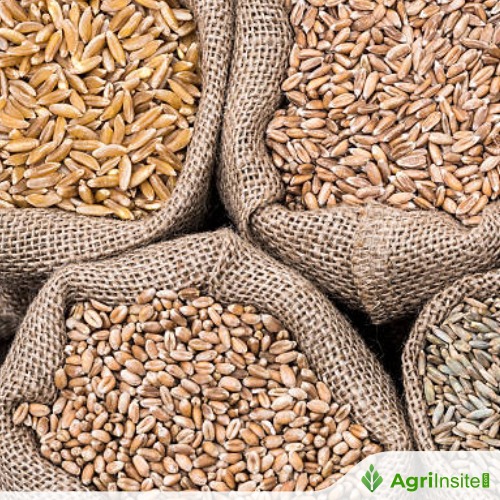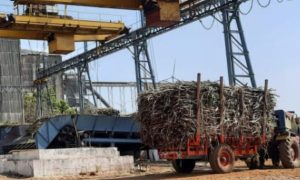South Africa : Spike in wheat tariff could boost local growers

South Africa’s wheat import tariff has increased from R549.50 to R856.34 per tonne, triggered by falling global wheat prices. While this supports local producers, its effect on food prices, such as bread, is expected to be minimal. Sacota and Grain SA are urging the government to streamline tariff implementation, proposing a faster system modeled after fuel price adjustments.
South Africa’s wheat import tariff has been triggered again, rising significantly from R549.50 to R856.34 per tonne. The South African Grain Information Service (Sagis) confirmed the adjustment, which could bring relief to the struggling local wheat industry. However, questions remain about the effect on wheat-based food prices.
Juan-Pierre Kotzé, South African Cereals and Oilseeds Traders Association (Sacota) manager of research projects, and Dr André van der Vyver, Sacota’s executive director, provided some perspective.
“The increase is the result of Sagis’ calculations, which are based on a variable wheat tariff formula that uses a three-week moving average of the free-on-board (FOB) US Hard Red Winter wheat price. This is then adjusted for local market conditions and converted to rand,” they explain.
They noted that the variable tariff arrangement was introduced in 2016. This followed an agreement between the wheat industry and the International Trade Administration Commission (ITAC) to protect local producers from international subsidies and maintain quality standards, at the request of local millers .
The latest trigger was caused by a consistent decline in international wheat prices over the past three weeks, according to International Grains Council (IGC) data. Sagis, as the independent price and tariff calculation body, publishes official prices every Thursday using a well-known formula within the sector.
Kotzé and Van der Vyver added that Grain SA applies for a higher tariff, while the National Chamber of Milling submits applications for reductions.
Impact on food prices expected to be minimal
“Imports have gradually increased over the years. Converted to a percentage, the current tariff (R549.50) comprises about 8.5% of the July traded price on the JSE of approximately R6 500. Despite an upward adjustment, it may have little impact on the price of bread,” said Kotzé and Van der Vyver.
They referenced a 2006 study by Jooste et al, which found that a 30% increase in domestic support (e.g. import tariff) would only result in a 1.43% increase in the bread price. No further studies have been done since.
Kotzé and van der Vyver emphasised that the wheat tariff is a vital policy tool to support the local sector and safeguard food security. South Africa imports nearly 50% of its annual wheat requirement of approximately 3.5 million tons. The pre-adjustment tariff of R549.50 per tonne made up about 8.5% of the JSE-traded price in July.
Implementation delays
Despite the tariff’s importance, delays in implementation remain problematic. Approval is required from ITAC, the ministers of trade and industry, and national treasury. Also, the publication must appear in the Government Gazette. Previous adjustments took months – one change from R422 to R183.50 per tonne took six months, while the recent increase to R549.50 per tonne took four and a half months to implement.
“These delays add risk,” explained Kotzé and Van der Vyver. “Although in most cases traders would attempt to offset the volume purchased for imports with futures hedged or physical sales on the local market, this is not always possible. Delays in the tariff implementation process result in more risks for the trader, which can only be offset by charging higher fees.”
In response, Sacota and Grain SA have jointly submitted a proposal to ITAC for a more efficient, predictable system. The proposal suggests a monthly automated review and publication mechanism, modelled after the fuel price system, to avoid prolonged delays.
The proposal aims for tariff changes to be published in the Government Gazette within 8 to 28 working days. For example, the 27 May 2025 tariff trigger could have been implemented by 31 July 2025, instead of potentially waiting several months.
To Read more about Wheat News continue reading Agriinsite.com
Source : Food For Mzansi















